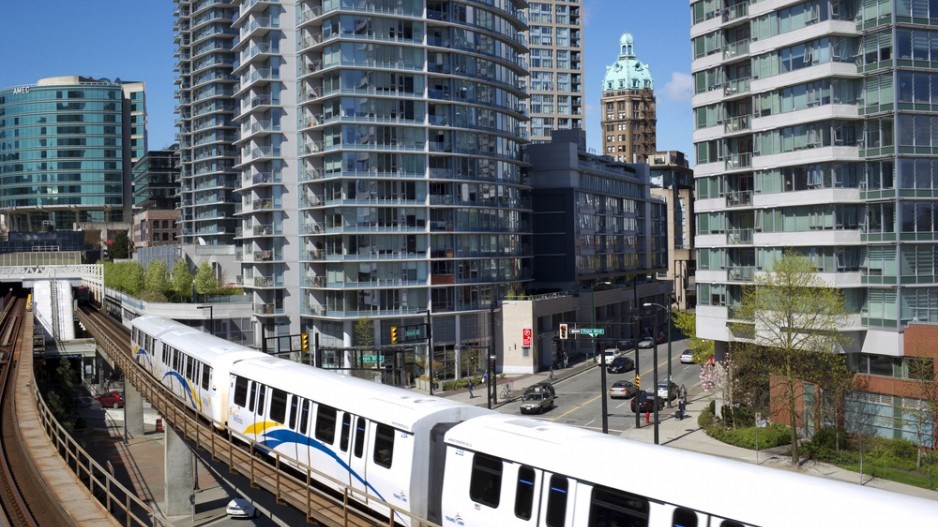It would be possible to fund proposed transit expansions in Metro Vancouver without the 0.5% PST increase currently being voted on in a regional plebiscite, the Fraser Institute argues.
In a report published this week, the think tank put forward the idea that the expansion of transit, roads and cycling infrastructure could be financed using existing budgets.
"Before requiring Metro Vancouverites to pay higher taxes, municipal governments and TransLink could scrutinize their existing budgets to find savings," said Charles Lammam, director of fiscal studies at the Fraser Institute and study co-author.
“Putting aside whether the transit expansion plan is the best option for the region and the economically damaging effects of increasing the PST, the mayors’ call for higher taxes assumes that none of the money currently being spent by municipal governments and TransLink can be spared,” the report said.
“This is a questionable assumption.”
The report does not debate or examine whether or not the proposed expansions are needed. Lammam told Business in Vancouver that this is a separate issue and that the Fraser Institute is not advocating a No vote.
“We are not in the position of telling people what to do,” he said, going on to say that the institute wants to inform the public of possible alternatives to the tax.
Metro Vancouver municipalities and TransLink should scrutinize their budgets to see where they can achieve savings that could be used to fund the expansions, Lammam said.
Over the past decade, the study says, spending by both Metro Vancouver municipalities (up 73%) and TransLink (up 105%) has outpaced spending by the provincial and federal government (46% and 31%, respectively), as well as the rate of inflation (31%).
The Fraser Institute said that in 2013, municipalities in Metro Vancouver spent $3.4 billion. If spending was kept at levels from 10 years ago and taking into account both inflation and population growth, 2013 spending would have been $2.6 billion – a difference of almost $800 million.
“If they were to act more prudently…they could have saved $778 million – three times more than what they are asking for in the tax hike,” Lammam said.
One of the main sources of spending overruns was in wages and benefits for government employees, the report said, which typically run almost 7% higher than those for private sector workers, not including pensions. As well, the number of TransLink employees making over $100,000 per year went up 14%.




